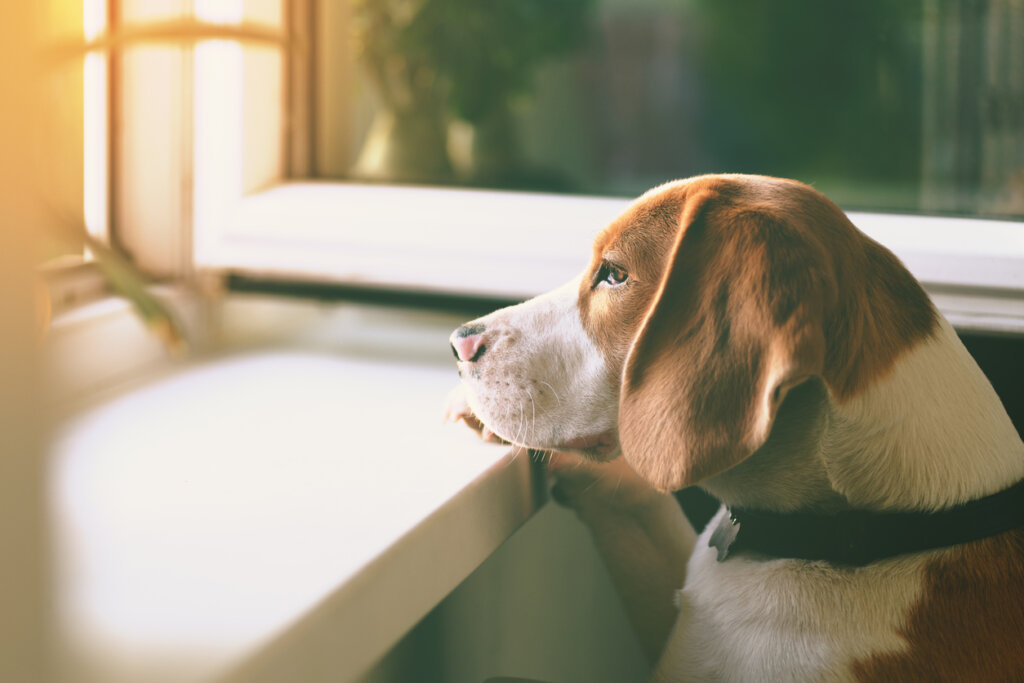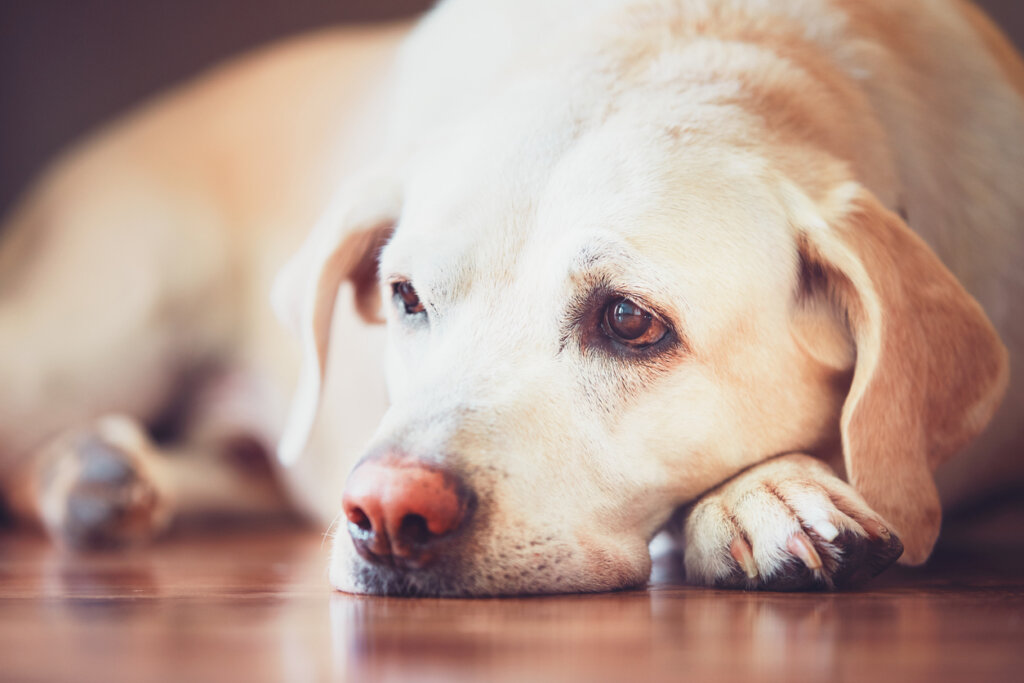Like Humans, Dogs Grieve After a Death, Claims Recent Research


Reviewed and approved by the psychologist Sergio De Dios González
Recent research has indicated that dogs experience a process similar to human grief after the death of ‘one of their own’ or their owners. Indeed, data indicates that these losses lead them to present changes in their usual behavior. Such alterations are associated with sadness.
This was confirmed in a study conducted by the University of Milan (Italy) by Dr. Federica Pirrone and her colleagues, and published in Scientific Reports.
In this research, they studied the behavior of certain dogs, thanks to the information provided by their owners. It concluded that dogs behaved differently after the loss of a canine peer. They also appeared to demonstrate sadness, which was possibly linked to their owner’s emotional state.
Although the available data can’t be considered conclusive, it does indicate that these animals are aware of death – if not wholly, at least to some extent.
“There are studies that reveal that, at the level of neuroscience and behavioral ethology, when you have these kinds of emotions in animals, the same areas of the brain that are activated in humans are activated.”
-Alaguna Cruz-

The dog grief study
The University of Milan study was based on a group of 426 owners, all of whom had owned two or more dogs. Another common factor was that one of the dogs in their care had died, while the other or others had survived.
Through the use of questionnaires, the researchers discovered that 86 percent of these owners had noticed changes in their dogs’ behavior after the death of one of their companions. The most significant trait was increased passivity and low enthusiasm for playing. There were also changes in their ways of eating and sleeping.
In addition to the above, almost all owners of the surviving dogs said that the emotion that seemed to predominate in their pets after the death of one of their own was fear. Furthermore, about 32 percent of group members were able to pinpoint that this atypical behavior had lasted between two and six months.
They also suffer on their owners’ behalf
The study from the University of Milan also concluded that it’s possible that dogs adopt these changes because they perceive suffering in their owners. It seems that dogs are susceptible to the mood of their caregivers. For this reason, they suffer a great deal when they grieve.
Dogs have a sense of smell that’s four times better than that of humans. This allows them to clearly recognize if a person is alive or dead. As is known, a dead body secretes a large number of substances, all of which are captured by the canines.
In dogs, when they’re faced with a loss, it seems that they experience something akin to that of humans. If the link between the two dogs was extremely strong, the absence will be more noticeable and there’ll be more changes in the surviving dog’s behavior. On the other hand, if the bond wasn’t as endearing, the effect will be less. It also seems that they experience more grief at the death of the ‘alpha’ in their pack.
Some veterinarians say that dogs experience strong feelings of helplessness when they lose their owners. These feelings are more intense if they don’t have the opportunity to be close to the body. For this reason, the veterinarian Alaguna Cruz has said: “Please, the day I die, let my dog sniff my coffin so that he knows that I’m dead and that I didn’t abandon him”.

Is it possible to help them?
One of the most common behaviors of grieving dogs is to sleep almost all the time and eat less. In addition, they don’t want to play or are reluctant to. Suddenly, it seems that there’s nothing that excites them; they’re apathetic.
The best way to help them is by trying to maintain the routines they’re already used to. Although they and their owner may not feel like going out, they should do so. Indeed, locking themselves up will only increase the sadness of them both.
Dogs need to feel that they’re in charge of someone specific. In turn, they need someone to look after them. This reduces the fear and lack of protection they might experience. However, if their manifestations of grief are extremely severe, their owner should consult their veterinarian.
All cited sources were thoroughly reviewed by our team to ensure their quality, reliability, currency, and validity. The bibliography of this article was considered reliable and of academic or scientific accuracy.
- Tomé, P. (2021). Perros y Humanos: una conjunta construcción emocional de la cotidianeidad. Nuevo Mundo Mundos Nuevos. Nouveaux mondes mondes nouveaux-Novo Mundo Mundos Novos-New world New worlds.
- Uccheddu, S., Ronconi, L., Albertini, M., Coren, S., Da Graça Pereira, G., De Cataldo, L., … & Pirrone, F. (2022). Domestic dogs (Canis familiaris) grieve over the loss of a conspecific. Scientific reports, 12(1), 1-9.
This text is provided for informational purposes only and does not replace consultation with a professional. If in doubt, consult your specialist.








